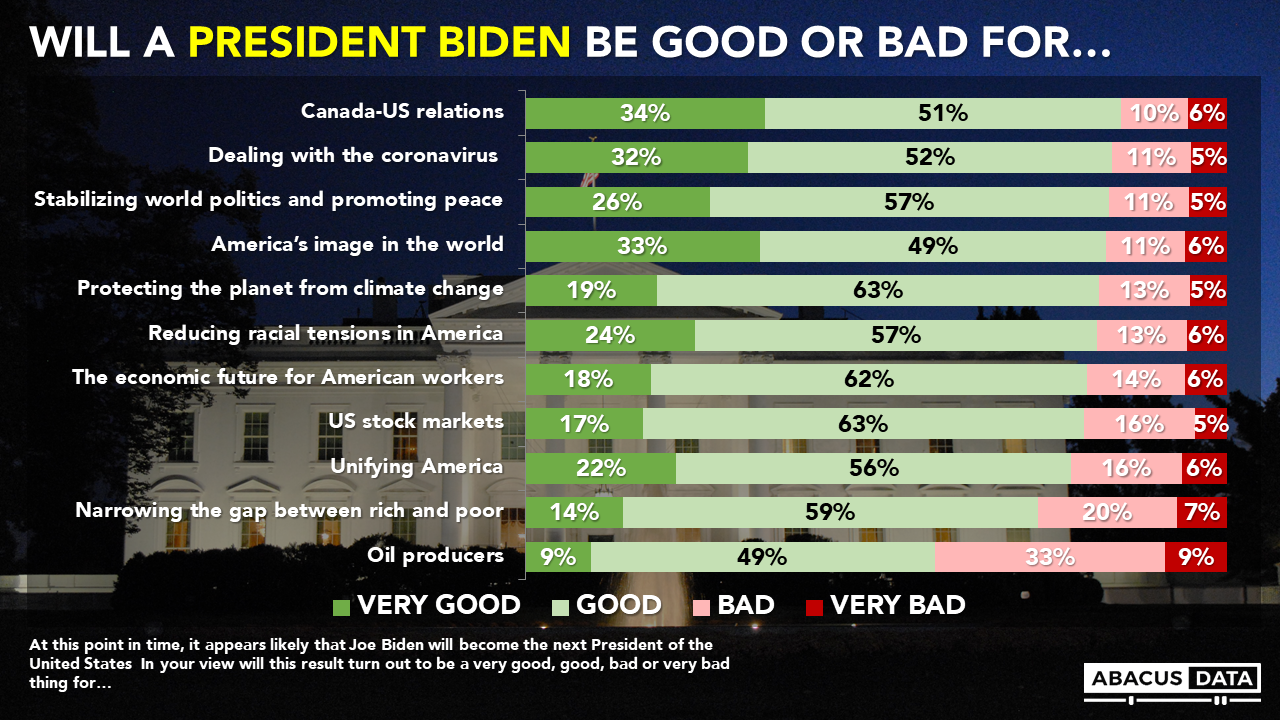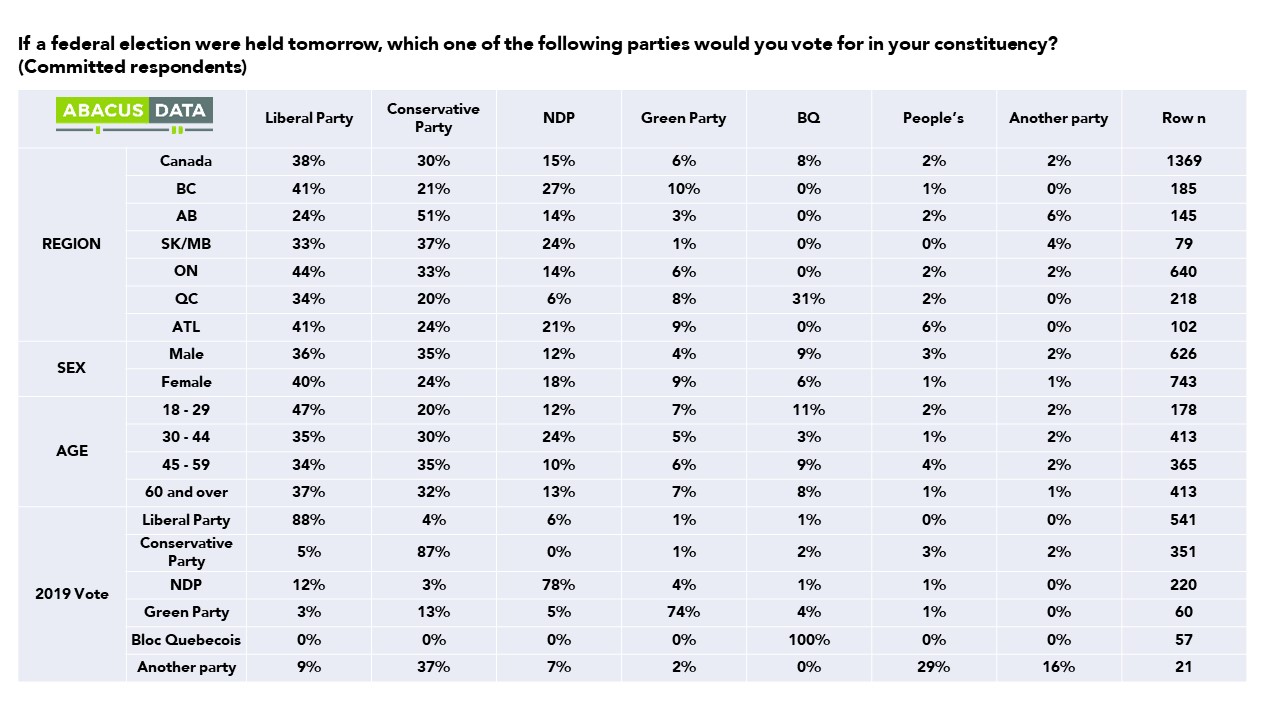Biden win met with relief and optimism in Canada
November 17, 2020
Canadians overwhelmingly believe the election victory of Joe Biden will be good for Americans and for the world.
We asked Canadians to indicate whether they think Mr. Biden’s win will be good or bad across eleven different topics and in 10 of 11 cases, at least 3 out of 4 people saw the Democrat’s win as good news.
Fully 85% saw Biden’s election as good for Canada-US relations, from a high of 88% in Quebec to a low of 73% in Alberta. 91% of voters on the left, 86% of those in the centre and 73% of those on the right feel this way.
80% or more see a President Biden as turning out well in terms of improving America’s image in the world, dealing with COVID-19, stabilizing the world and promoting peace, narrowing the income gap, fighting climate change, and reducing racial tensions.
Almost as many see improvement for American workers, the US stock markets, and 78% think he will help unify America. It was only when it came to the prospects for oil producers that a significant minority saw headwinds – clearly a reflection of some knowledge that Biden intends to work to decarbonize the US economy. In Alberta, 62% said Biden’s victory would be bad for the oil sector.

President-elect Biden is also well regarded in Canada. 52% have a positive impression of him compared with 16% who have a negative view. Since his election, his positives are up almost 20-points from early in October.
He has a net positive image across the political spectrum +59 with Liberals, +47 with New Democrats, +42 with Greens, +49 with BQ voters, and +8 with Conservative voters.
In contrast, President Trump is viewed positively by only 9% of Canadians and negatively by 80%.

Finally, in our last survey before the presidential election, only 10% thought the US was heading in the right direction. That number has more than doubled to 22% this week. And the right direction indicator for Canada jumped 7-points while optimism about the direction of the world increased 5-points following President-elect Biden’s win.

UPSHOT
According to Bruce Anderson: “The Trump presidency was traumatizing for many in Canada. Friction was created, ostensibly just for its news value, by President Trump. He forced a renegotiation of NAFTA, frequently described Canada as taking advantage of Americans, and pursued policies at home and abroad that were inconsistent with the values and priorities of the large majority of Canadians, across the political spectrum. It’s doubtful that many Canadians have digested his detailed policy roadmap but what is not in any doubt is that a broad cross-section of Canadians believe America made a change for the better with their votes on November 3.”
According to David Coletto: “If Joe Biden was a national Canadian political leader, he’d be the most popular by far with a net favourable rating of +36. Not only do Canadians like him and 75% would have voted for him if they had thebchance, but his election has raised the collective mood of the country.”
ABOUT ABACUS DATA
We are the only research and strategy firm that helps organizations respond to the disruptive risks and opportunities in a world where demographics and technology are changing more quickly than ever.
Find out more about what we are doing to help clients respond to the COVID-19 pandemic.
We are an innovative, fast-growing public opinion and marketing research consultancy. We use the latest technology, sound science, and deep experience to generate top-flight research-based advice to our clients. We offer global research capacity with a strong focus on customer service, attention to detail and exceptional value.
We were one of the most accurate pollsters conducting research during the 2019 Canadian Election.

Contact us with any questions.
Find out more about how we can help your organization by downloading our corporate profile and service offering.
METHODOLOGY
The survey was conducted with 1,664 Canadian adults from November 6 to 12, 2020. A random sample of panelists were invited to complete the survey from a set of partner panels based on the Lucid exchange platform. These partners are typically double opt-in survey panels, blended to manage out potential skews in the data from a single source.
The margin of error for a comparable probability-based random sample of the same size is +/- 2.5%, 19 times out of 20.
The data were weighted according to census data to ensure that the sample matched Canada’s population according to age, gender, educational attainment, and region. Totals may not add up to 100 due to rounding.





